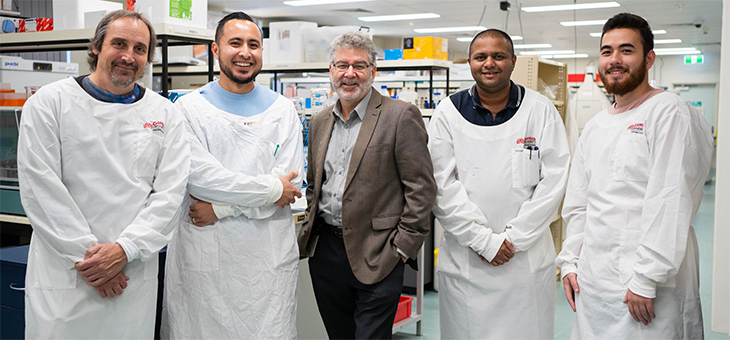Australian researchers have developed an antiviral treatment for COVID-19 that they believe is “almost as good as a cure”.
The researchers from the Menzies Health Institute Queensland at Griffith University have developed an antiviral treatment able to cut the COVID-19 viral load in infected mice by 99.9 per cent.
The treatment uses gene-silencing technology, originally developed in Australia in the late 1990s, to destroy the COVID-19 virus genome and stop it replicating.
Read more: Vaccine questions answered
Lead researcher Professor Nigel McMillan told the ABC that while it was not a cure, it was “almost as good as a cure”.
“It is really for those people who are suffering, for example, in ICU, where vaccines are too late,” he said.
“Essentially it is a seek and destroy mission; we can specifically destroy the virus as it grows in someone’s lungs.”
Read more: New vaccine set to join rollout
Prof. McMillan explained that the RNA medicine is delivered by nanoparticles injected into the bloodstream, where they travel to the lungs and fuse into the infected cells to deliver the RNA.
“The RNA seeks out the virus and it destroys its genome, so the virus can no longer replicate,” Prof. McMillan said.
“This is incredibly specific to just the virus, so normal cells don’t suffer from any side-effects at all with this particular treatment.
Read more: Majority of Australians supports mandatory vaccination
“Treatment with the therapy in SARS-Cov-2 infected mice improved survival and loss of disease. Remarkably, in treated survivors, no virus could be detected in the lungs.”
Professor Kevin Morris, the co-lead researcher on the project, said that one of the advantages of the gene-silencing treatment was that it could be used to treat other viruses in future.
“This treatment is designed to work on all beta-coronaviruses, such as the original SARS virus (SARS-CoV-1) as well as SARS-CoV-2 and any new variants that may arise in the future, because it targets ultra-conserved regions in the virus’ genome,” Prof. Morris said.
“We have also shown that these nanoparticles are stable at 4 degrees Celsius for 12 months and at room temperature for greater than one month, meaning this agent could be used in low-resource settings to treat infected patients,”
The treatment could be available as early as 2023, depending on the outcomes of the next phase of clinical trials.
Watch Prof. McMillan explain how the antiviral COVID-19 treatment works in the video below.
Do you think this antiviral treatment could help life around the world return to normal? Share your thoughts on this new treatment in the comments section below.
If you enjoy our content, don’t keep it to yourself. Share our free eNews with your friends and encourage them to sign up.

